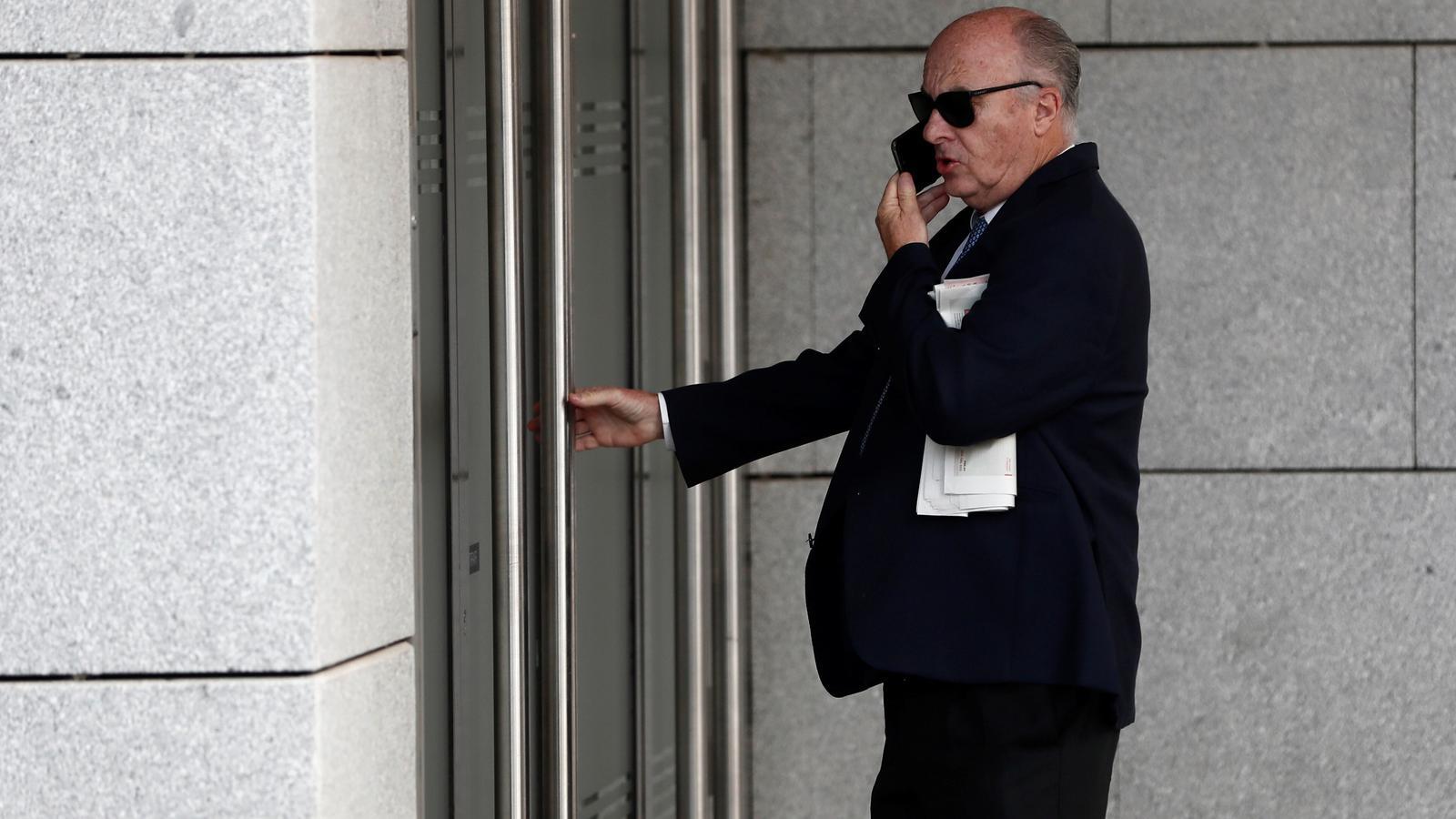
- The Appellate Chamber of the National Court stated on Monday evening that the last three years of investigation into the tsunami court case must be annulled for its "illegal prolongation". Once that decision became final, Carles Puigdemont and Marta Rovira could leave the case. Within a few hours of this resolution came the decision of Judge García-Castellón to reject the prison petition. As a result of these movements, it was on Tuesday that the Supreme Court filed the Tsunami case and dismissed the open investigation against former Catalan President Carles Puigdemont and ERC Deputy Rubén Wagensberg.

Two unsuspected decisions take place on Monday in the Spanish judiciary. First, in the early afternoon of Monday, the car of the National Court’s appellate chamber has arrived: Order of invalidity of the investigation in the case against Tsunami Democratic for more than four years of investigation as of July 2021. According to the order, in July 2021, Judge García-Castellón "illegally" prolonged the case, to which ERC Deputy Marta Molina filed an appeal. The Appellate Chamber agreed with Molina on Monday night. Therefore, when this order became final, only those investigated before July 2021 should continue as investigated, and not those prosecuted – Carles Puidgemont and Marta Rovira were charged in November 2023 precisely when the Amnesty Law was being negotiated.
García-Castellón has been arrested during the holiday period by the court order in the appellate chamber of the National Court, which was about to see how the case affects. Well, a few hours later, at about 21:30 hours the emergency order signed by García Castellón, which has filed the case against the Democratic Tsunami, has been released. However, in his indictment, he states that he sees "signs of terrorism" in these facts.
Ten of the twelve defendants were in the hands of the Supreme Court, so, as far as the case is concerned, they may be considered not to be at risk of being arrested. Most of them are also in exile.
The Supreme Court has taken the path of the National Court the following day, Tuesday, filing the case. In exile are Carles and Ruben Wagensberg, investigated by the Supreme. The investigation for being apprehended was in the hands of the Supreme, as Puigdemont is a MEP and Wagensberg is a MEP.
However, Puigdemont is not entirely freed. He has not been amnestied by the procedure opened against him for an alleged offence of misappropriation of public funds.
Marta Rovira: "It's poetic justice."
ERC Secretary General at Parlament Rovira spoke on Tuesday on Catalan radio RAC1 in Brussels. He has been abroad for almost seven years in Switzerland. He has reported that the desire to return has been "revived" and that this week, quite rightly, the CKD women's assembly is convened, and that going there would make him "a special illusion". "After so long, I would have every political sense that I would come back to that assembly." However, he does not know if he will be able to return. He says that he has lots of meetings, that you have to look at a lot of things with lawyers.
"It's poetic justice," Rovira said, in statements to the radio station, to Reuters: "I'm full of excitement. A very special and hopeless time has come." Furthermore, he explained that I would like to return with the exiled ERC Member Rubén Wagensberg, and he hopes that his case will also be filed by the Supreme. The Supreme file can arrive in a few days.
However, Carles Puigdemont, for the time being, cannot return to the Endesa League. In fact, just a week ago, the High Court held that the "misappropriation of public funds" in the 1-O court case is not an amnesty offence. The arrest warrant is maintained for this offence. Rovira was also in that case, but he would be subject to the Amnesty Act.
Rubén Wagensberg hung this picture on the net when the news of the cause file was just known. There are four people in exile. In the image, Oleguer Serra de Ómniun, Marta Rovira, Ruben Wagensberg and Jesús Rodríguez de Redín.
A question has also been put to Europe
Another front remains open in the judiciary in Spain. During the holidays of the judge of the National Court García-Castellón, his substitute María Tardón and the head of the Criminal Chamber of the Supreme Court, Susana Polo, are the two investigating judges of the case against Tsunami who, in early July, have asked the Court of Justice of the European Union whether they are persons accused of terrorism by the recent Amnesty Act.
Europe has not yet responded, and that too remains to be seen. Let us suppose that, unlike the National Court, the Supreme would like to go ahead, a resolution contrary to the European Court of Justice would lead to a harsh blow.
The Tsunami case: the influence of clear political intentions
Despite four years of research, the Tsunami case has intensified significantly in the last ten months, precisely when, and not casually, the Amnesty Act was being negotiated in Congress, that is, in the autumn of 2023. Until then there were hundreds of investigators in the summary, but otherwise no more serious crimes were mentioned. As of November 2023, a dozen people were charged by the judge of the National Court García-Castellón for crimes of terrorism and against human rights, including Carles Puigdemont and Marta Rovira, as well as by a journalist and an entrepreneur. At least seven people are exiled.
Those charged in exile received "with great surprise" the two events that took place on Monday afternoon, as they said to Argia. They are, of course, "happy," but they are also told that they will act with "prudence," as it is about to see what it can get.
For more information on the tsunami case: ARGIA interviewed in Switzerland, both in writing and in video, two people exiled by the Tsunami case: Rubén Wagensberg, ERC Member, and Jesús Rodríguez, journalist of 'Directo'.